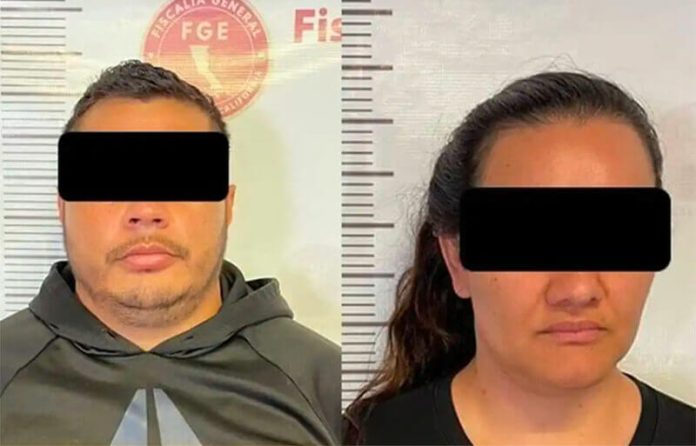A man believed to be the leader of the Sinaloa Cartel in Tijuana was arrested in the border city on Tuesday.
Edgar Pérez Villa, who uses the alias León Emmanuel Castillo and is known by the nicknames “Cuervo” and “Cabo 89,” was detained by Baja California police in the second section of the Las Huertas neighborhood.
A woman identified as Lucía N., who is believed to be Pérez’s partner, was also taken into custody.
According to information provided to the news magazine Zeta Tijuana, Pérez is the operational leader of the Sinaloa Cartel in Tijuana and a former member of the Jalisco New Generation Cartel (CJNG) in the same city.
He’s considered one of the main instigators of violence in Tijuana, especially in the Sánchez Taboada district, which the newspaper El Universal recently described as “the most dangerous neighborhood in the country’s most dangerous city.”
Pérez and Lucía N. were traveling in a Toyota Corolla marked as a taxi when they were stopped by state police. Two children were also in the vehicle. They were placed in the care of authorities after the arrest of Pérez and Lucía N., who are presumably their parents.
Police seized one firearm and ammunition from the vehicle as well as approximately eight grams of methamphetamine.
Zeta Tijuana reported that Pérez has been previously detained for making threats and weapons offenses. He was wounded in a gunfight in Tijuana in 2017. Lucía N. was previously detained last year for drug trafficking.
Pérez reportedly started his cartel career as a member of a cell of the CJNG that operated in Sánchez Taboada and surrounding areas. The cell had an alliance with a criminal group called Los Cabos, to which Pérez also allegedly belonged.
Between 2017 and 2019, Pérez established and oversaw small-scale drug trafficking points before becoming involved in the smuggling of large quantities of narcotics into the United States. It is unclear when he took on the operational leadership of the Sinaloa Cartel in Tijuana but he was still allegedly involved with the CJNG until as recently as March this year.
Pérez has also been indicted in the United States. The United States Attorney’s Office for the Southern District of California said in June that a superseding indictment and arrested warrants had recently been unsealed in a federal court against Mexican drug cartel enforcement leaders including Cabo 89 for “their alleged violent support of heroin and methamphetamine trafficking.”
According to the United States government, Pérez and other Los Cabos cartel enforcers employed “rampant violence” to ensure that the CJNG maintained the ability to traffic drugs through Tijuana and into the U.S.
Cabo 89 and at least three other men planned more than 150 murders in a period of 6 1/2 months, the majority of which took place in Tijuana, according to court filings in the United States.
“Los Cabos’s bloody reign of terror included the murder of two teenaged United States citizens in Tijuana in November 2018, the government alleges,” the U.S. Attorney’s Office said.
If he is tried and convicted in the United States, Pérez could spend the rest of his life behind bars and be ordered to pay a fine of US $10 million.
With reports from Zeta Tijuana
